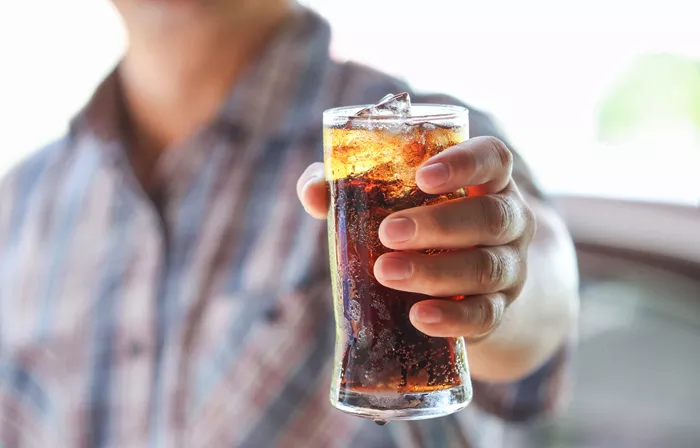Cutting down on sugar-sweetened beverages (SSBs) may help protect men’s fertility, according to a recent review published in the journal Nutrients. The review analyzed studies from 2000 to 2024 and found that regular intake of sugary drinks is connected to poorer sperm health, mainly due to hormonal imbalances and oxidative damage.
What Are Sugar-Sweetened Beverages?
SSBs are the biggest source of added sugar in many diets. A typical 355ml soda contains about 35 to 37.5 grams of sugar and 140 to 150 calories. These drinks often include high-fructose corn syrup, sucrose, or fruit juice concentrates. Global consumption of SSBs rose by nearly 23% between 1990 and 2018, with men drinking more than women. For example, in Singapore, the average daily sugar intake was around 60 grams in 2018.
Impact on Sperm Health
Studies show a sharp decline in sperm quality over recent decades, with sperm concentration dropping by over 50% from 1973 to 2018. Male fertility can be affected by lower sperm counts, reduced semen volume, poor sperm movement, and abnormal sperm shape. Poor semen quality is also linked to higher risks of chronic diseases like diabetes and heart conditions.
High consumption of sugary drinks contributes to obesity, which harms sperm quality. Excess sugar can cause insulin resistance, high triglycerides, and faster aging. Research indicates that drinking more than seven sugary drinks a week—equal to about 245 to 262 grams of sugar—can reduce sperm concentration by 22% compared to men who do not consume SSBs. Semen volume tends to be slightly lower as well, though this finding is less consistent. Effects on sperm motility and shape are less clear, with some studies showing modest or no significant changes.
How Sugary Drinks Harm Male Reproductive Health
SSBs may cause obesity, which disrupts the hormonal system controlling sperm production. High sugar intake lowers hormones like inhibin-B, which is linked to sperm count. Sugary drinks also increase oxidative stress by producing harmful molecules called reactive oxygen species (ROS). These damage sperm DNA, membranes, and mitochondria, reducing sperm’s ability to move and fertilize eggs.
Chronic oxidative stress speeds up cellular aging. For example, heavy soda consumption has been associated with shorter telomeres in white blood cells, a marker of premature aging. High sugar intake also causes spikes in blood sugar and worsens blood vessel function. Some antioxidants, such as vitamins C and E, coenzyme Q10, and glutathione, may help reduce this damage. However, excessive antioxidant supplements could harm sperm, so a balanced diet rich in natural antioxidants is recommended.
Artificially Sweetened Drinks
Some studies looked at diet or artificially sweetened beverages and found little or no effect on sperm health. More research is needed to confirm these findings.
Conclusions and Recommendations
The evidence suggests that regularly drinking sugary beverages lowers sperm count and motility and increases DNA damage in sperm, which can harm male fertility. Most studies are observational, so they do not prove direct cause and effect. Still, reducing sugary drink intake, maintaining a healthy weight, and eating antioxidant-rich foods are advised to support reproductive health.
Future research should include long-term studies with standardized methods to better understand how sugary drinks affect sperm. Studies should also consider factors like body mass index, physical activity, antioxidant intake, and environmental exposures to clarify the relationship. Research on diverse populations, including Asians, is important to understand global impacts.


